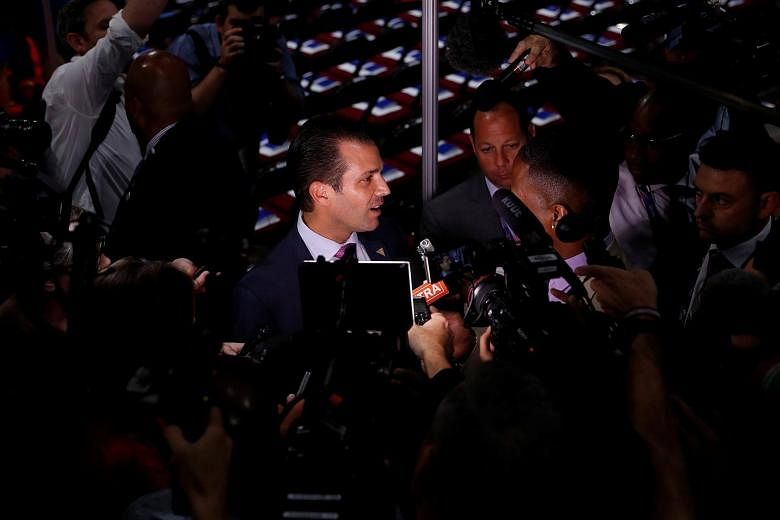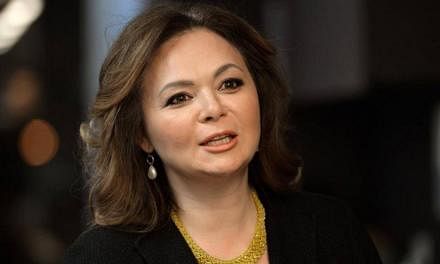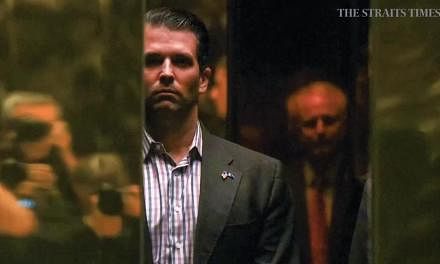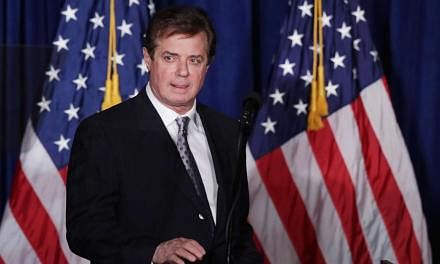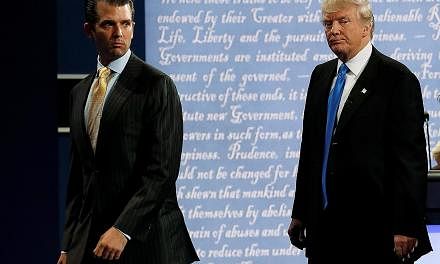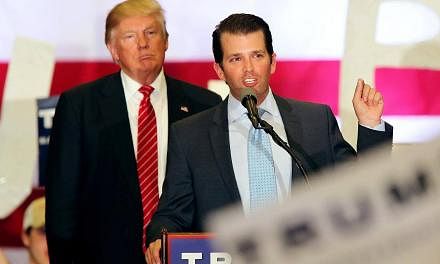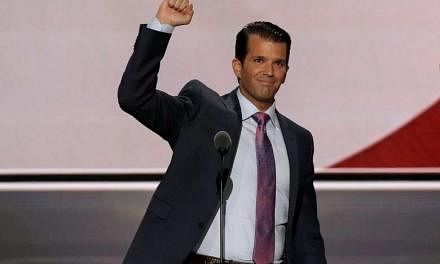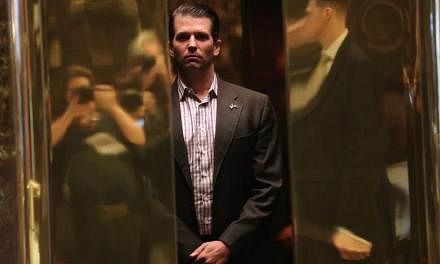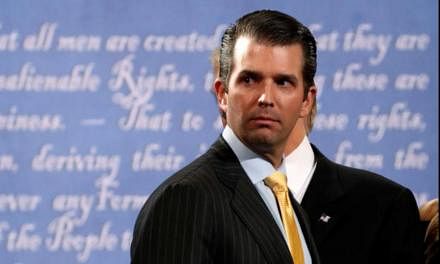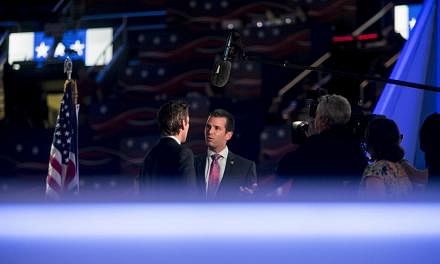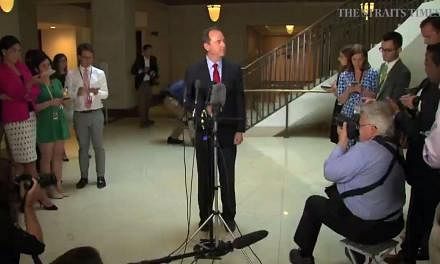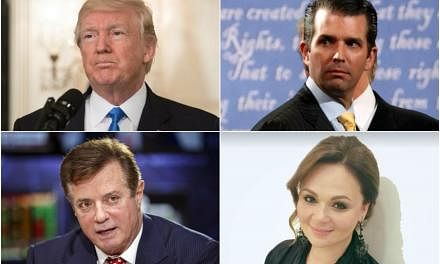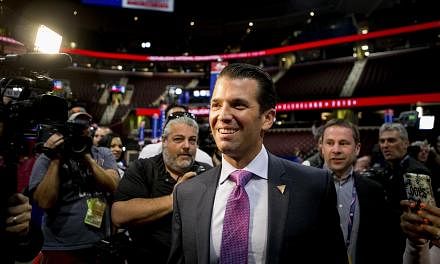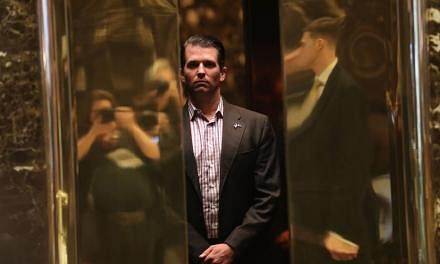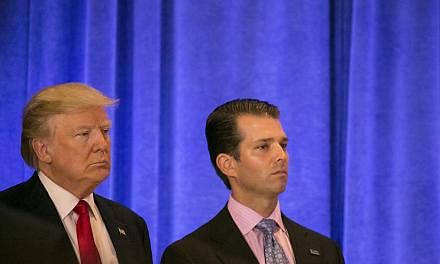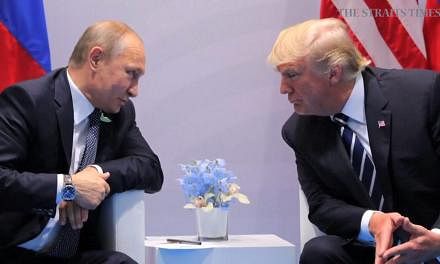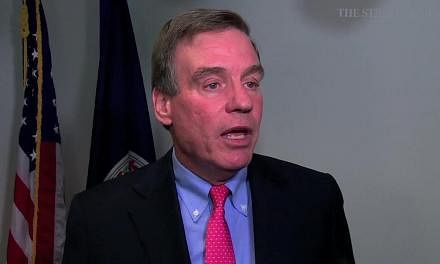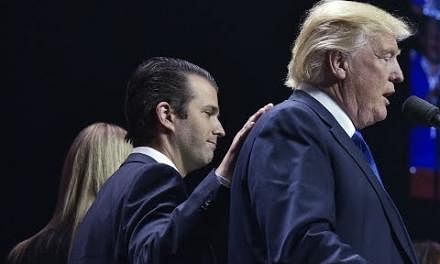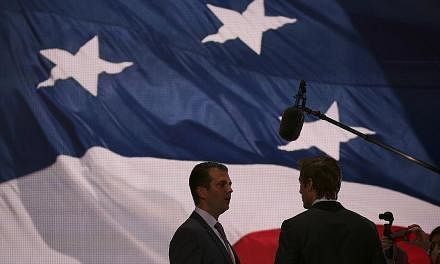WASHINGTON (REUTERS) - The US agency that could bring civil charges against Mr Donald Trump Jr if it found he violated campaign finance laws by meeting a Russian who purportedly had damaging information on Mrs Hillary Clinton is often gridlocked by partisan politics and can take years to mete out punishment, legal experts said on Wednesday (July 12).
Some Democratic lawmakers want the Federal Election Commission to charge Mr Trump Jr based on e-mails in which he eagerly agreed to meet a woman he was told was a Russian government lawyer with damaging information about Democratic presidential candidate Clinton.
They argue that his enthusiasm was akin to seeking something of "value" from a foreigner, which is prohibited under US campaign laws.
Democrat US Representative Grace Meng wrote to the Federal Election Commission on Wednesday asking it to take up a complaint against Mr Trump Jr that was filed this week by government watchdog group Common Cause.
The group asked the agency to investigate and said there was "a troubling pattern of President Trump, members of his family and key advisers acting as if they are above the law".
Ms Judith Ingram, a spokesman for the Federal Election Committee, said any complaints it received would be handled confidentially and she declined further comment.
Mr Larry Noble, a former general counsel for the Federal Election Commission who now is senior director of the Campaign Legal Centre, said he thinks complaints about Mr Trump Jr have merit and that the agency should investigate.
He said if the commission rejected or ignored the complaints, outside groups could sue it to try to force an investigation.
The Department of Justice could file criminal charges if there was evidence of wrongdoing by Mr Trump Jr, but such decisions would be left to special counsel Robert Mueller, who is investigating possible collusion between the Trump campaign and Russia during the 2016 presidential campaign.
The Federal Election Commission consists of six commissioners, traditionally three Republicans and three Democrats, but vacancies have left just one Democrat, an independent and three Republicans.
To begin an investigation against Mr Trump Jr, four of the commissioners would need to consent. If any of the Republicans declined to consent the group would be gridlocked.
Former Federal Election Commission chair Ann Ravel has been a vocal critic of the agency, writing in a report earlier this year that it was "deadlocked" by partisan division. She cited the agency's refusal to investigate secretly owned shell corporations contributing millions to political groups known as Super PACS (political action committees), thereby making it impossible to determine the source of the cash.
She noted that in 2006, commissioners were deadlocked in 2.9 per cent of substantive votes in Matters Under Review that were closed that year. In 2016, the commissioners deadlocked in 30 per cent of all substantive votes taken in such matters.
In 2006, she wrote, the Commission assessed more than US$5.5 million in civil monetary penalties for Matters Under Review. In 2016, it imposed a total of US$595,425 (S$820,400) in civil monetary penalties for Matters Under Review.
In an opinion piece for The New York Times in February, she wrote, "What we are left with is an agency mandated to ensure transparency and disclosure that is actually working to keep the public in the dark."
Mr Paul S. Ryan, a lawyer with Common Cause who filed the complaint against Mr Trump Jr, acknowledged that the agency's enforcement power is "very weak". "Our best hope... is going to be Robert Mueller's investigation," he said.
